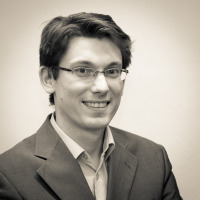Reuse of medical masks with sterilization via ionising radiation
Update (March 27th, 2020): on the first tests carried out on March 25 on the basis of sterilization with beta and gamma ionizing radiation at 35kGy, the barrier properties of the FFP2 masks do not seem to be preserved. The MIT confirmed on March 26th to obtain similar results at 25kGy. The approach proposed in this document of sterilization by pure and intense application of ionizing radiation therefore appears to be non-viable. However, on March 27, the Duke Regional Biocontainment Laborary has just released a protocol for decontamination by hydrogen peroxide vapor. This protocol can replace the approach taken in this document.
Synthesis: this document proposes an initiative to allow the reuse of medical masks on a large scale through the sterilization of masks via pre-existing French ionizing radiation infrastructures. This initiative aims to avoid the amplification of the Covid-19 health crisis due to a shortage of masks for medical personnel, which would lead to additional contamination from the medical personnel themselves.
Several uncertainties remain, but this initiative makes it possible to envisage, with reasonable hypotheses, the reuse of 250,000 medical masks per day for a cost of less than 1€ per mask within a week, and probably a million or more within a month.
The production of medical masks (N95 or FFP2) seems to be limited, at the global level, by the production of non-woven textiles, much finer than normal textiles (e.g. cotton). These non-woven textiles are the core of the mask and make it effective. The actors concerned are already doing their utmost to accelerate the production of these non-woven textiles, however the equipment required is complex, expensive and slow to deploy.
To compensate for this status quo, it may be possible to use the ionizing radiation network, which exists in France, to sterilize used medical masks, and to enable these reconditioned masks to be reintroduced to the healthcare services. This process could be launched on a very large scale in a very short period of time - 2 or 3 days if the necessary means are implemented.
Acknowledgements (in no particular order) : Philippe Prigent, Godefroy Beauvallet, Fabian Hoehner and naturally the Ionisos company.
Document : online version
